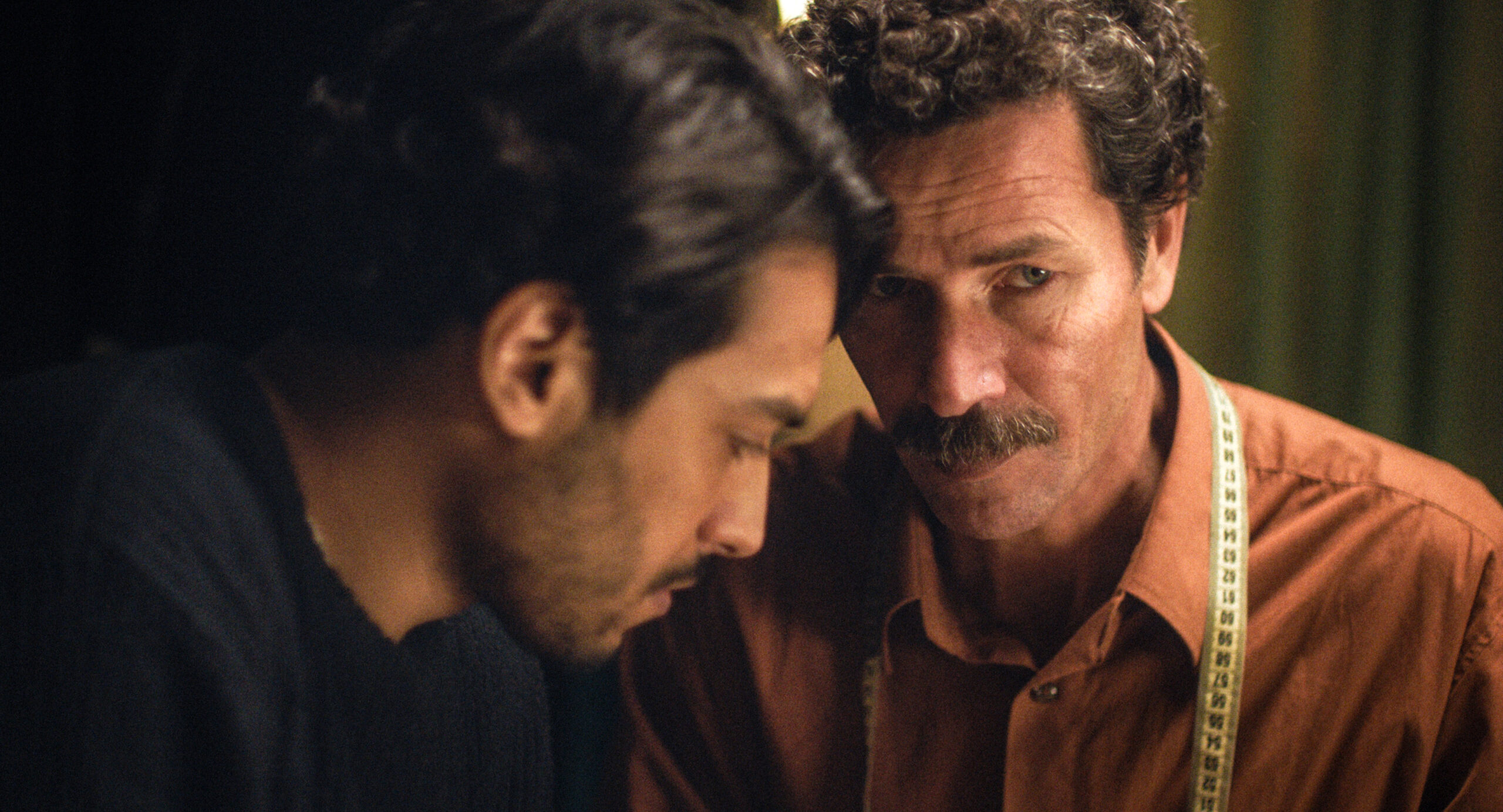The Blue Caftan Review
Filmmaker Maryam Touzani’s tender and empathetic sophomore directorial outing follows a marriage under strain. Set in the Moroccan town of Salé, a seemingly happily married couple take on a handsome young apprentice at their shop selling beautiful handmade traditional caftans, but his arrival stirs and wakes long held secrets and unspoken truths.
Touzini’s style and formal restraint makes it easy to draw comparisons to acclaimed filmmakers such as Asghar Farhadi or Haifaa Al-Mansour’s penchant for social realism, but we’re also reminded of the repressed desire present in Claire Denis’s masterpiece Beau Travail; longing and sadness expressed in micro gestures, played out in intimate close ups. It’s in these tiny moments that the film comes alive, telling us everything we need to know about these characters and their lives through a glance or motion.
Saleh’s Bakri’s outstandingly controlled performance as the tortured Halim is complimented by Lubna Azabal’s warmth and ability to express a lifetime of compromise and love with a single look. Both performances, and the film itself, avoids easy conclusions in favour of something more complicated and real. A moment they share in bed towards the film’s climax is one the of year’s most moving. But there’s joy, too. Touzani knows that life, even in the extreme, is tragedy and joy; introducing scenes of levity and humour that makes its heartbreak all the more affecting.
In approaching universal themes through the lens of a specific story, Touzani has crafted a film that explores and challenges societal norms and constraints with maturity, and most importantly, understanding.
